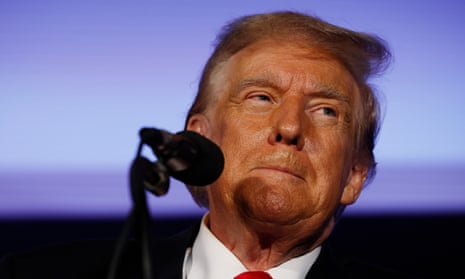
Donald Trump's legal team has appealed to the US Supreme Court, urging a reversal of a judicial decision that disqualified the former president from the Republican primary ballot in Colorado. The move comes as the Supreme Court prepares to address the contentious case related to Trump's involvement in the events surrounding the January 6 Capitol attack, with oral arguments scheduled for February 8.
In court documents, Trump's lawyers presented his main arguments against the Colorado Supreme Court's ruling on December 19, citing the 14th Amendment of the US Constitution. The legal team stressed that the 14th Amendment provision does not apply to presidents, arguing that the question of presidential eligibility falls under the jurisdiction of Congress. They also contended that Trump did not partake in an insurrection.
Trump's lawyers urged the Supreme Court to swiftly put an end to the efforts to disqualify him from various state ballots, noting that similar initiatives were underway in more than 30 states. The justices had agreed to an accelerated schedule on January 5 when they decided to take up the case, given the approaching date of Colorado's Republican primary on March 5.
As the frontrunner for the Republican nomination to challenge Joe Biden in the November 5 election, Trump's eligibility is a significant focal point. The case was initiated by six conservative Republican or independent voters in Colorado, who questioned Trump's eligibility based on his actions leading up to the Capitol attack.
The plaintiffs have until January 31 to respond to Trump's filing. The Colorado ruling marked the first instance of using Section 3 of the 14th Amendment, known as the "disqualification clause," to deem a presidential candidate ineligible. This case is part of a broader effort to disqualify Trump from state ballots under the 14th Amendment, and the Supreme Court's ruling may influence the outcome of similar efforts.
Notably, Trump has also appealed to a Maine court after the state's top election official barred him from the primary ballot under the 14th Amendment. The Maine case is on hold pending the Supreme Court's decision in the Colorado case. The 14th Amendment, ratified after the American Civil War, aims to address issues related to insurrection and rebellion against the United States.
